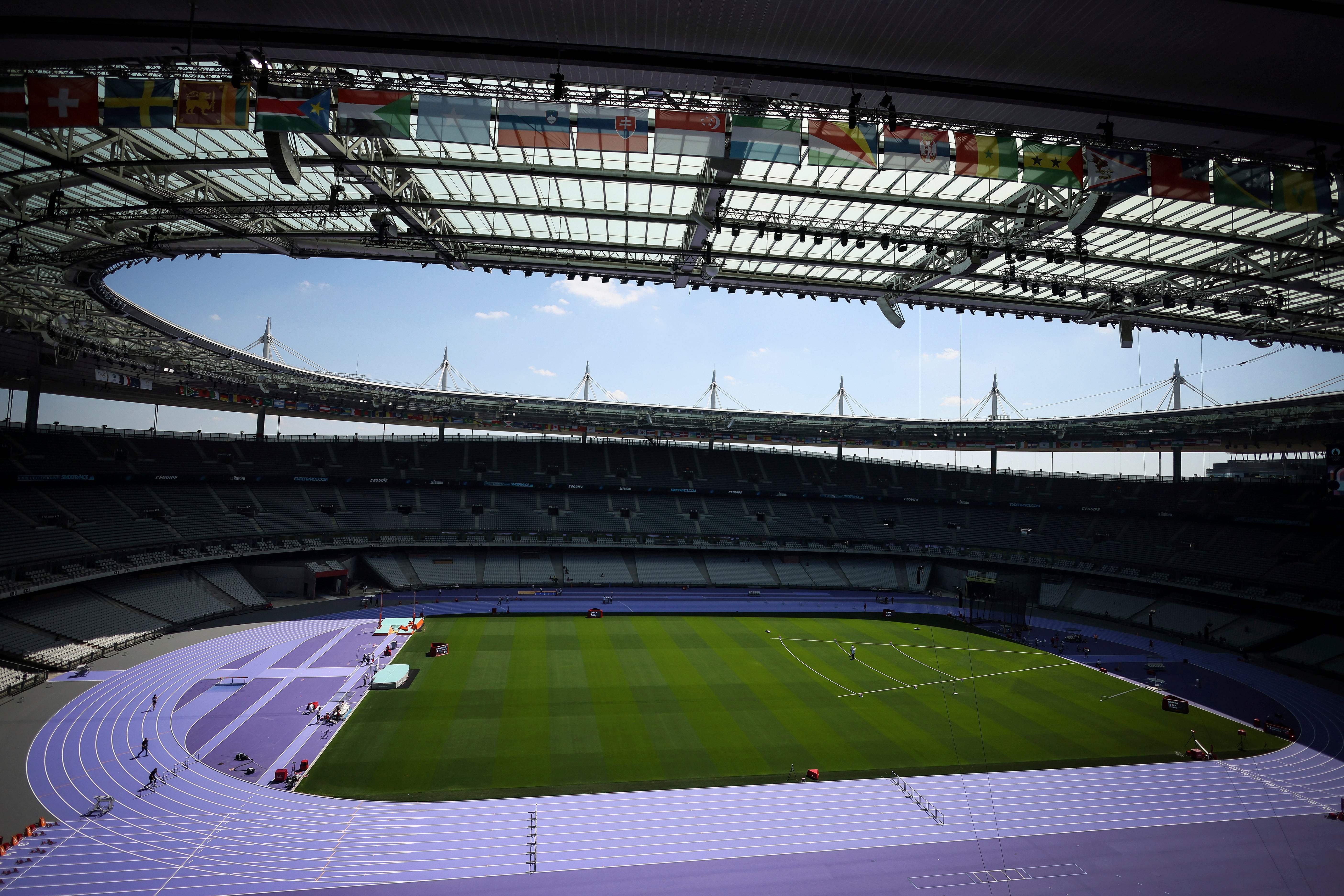Paris Olympics embrace accessibility technology for visually impaired fans
As Paris shines under the global spotlight of the Olympic Games, technological innovations are enabling people with visual impairments to take it in

As Paris shines under the global spotlight of the Olympic Games, technological innovations are enabling people with visual impairments to take it in.
Each Olympic venue is a mosaic of singular stories, from the athletes to the spectators. Even before the Paralympic Games begin later this month, Paris 2024 organizers strove to make the Olympics more accessible.
“For these Games, we wanted to carefully listen to the ecosystem of people with disabilities,” said Ludivine Munos, a former Paralympic swimming medalist responsible for integrating accessibility as part of the Paris 2024 Olympic and Paralympic Games Organizing Committee.
“Our goal is precisely to provide an experience with as few barriers as possible. People with disabilities have specific needs and sometimes find it difficult to understand what is happening on the field,'' she said.
Sports at your fingertips
A standout innovation is the Vision Pad, a tactile tablet designed to add another layer of interaction for those with visual impairments. It features a moving magnetic ball, representing the ball in play on a court or a field. Users run their fingers across the tablet to keep track of the movement of the ball.
With a whole basketball court at her fingertips, Olympic enthusiast Zoé Thierry described her first experience with the pad, at the Bercy Arena for the Greece-Germany quarterfinal on Tuesday: “This time, we are truly immersed in the action, we can really follow the ball.''
“In addition to the great atmosphere, of course, because I could always feel that. But it’s a great addition to the game,” she adds.
A total of 45 tablets are available, and can only cover ball games for now. It's being used for basketball, soccer and rugby at the Olympics and four sports at the Paralympics. ‘’It would be good if we had it for individual sports too,'' Thierry said.
Other new technologies also address visual impairments. One app helps visually impaired people find their seats in trains. Another is the Low-Vision Helmet, which allows users to zoom in on an athlete, race or action. Visually impaired individuals wear it on their eyes, like a VR headset. It's connected to the venues' broadcast feed, letting users switch between live-action and televised coverage, Munos explains.
In France’s largest stadium, the Stade de France — where the thrill is the strongest but the athletes look the smallest — the Low-Vision Helmet really comes into its own.
French visitor Florian Trichaud, who has visual impairments and considers sports his “drug,” wore the helmet for a track and field final in the Stade de France on Thursday. A big soccer fan, he usually likes going to sporting events ‘’just for the atmosphere and the fan culture.''
“With this headset, I was able to experience things visually, and it’s hard to realize, but being able to see the elements and feel included makes a real difference for us,” he said.
Trichaud noted a few limitations: “The resolution could still be improved, and the headset can be quite tiring for the eyes.”
The products were designed by companies including GiveVision, Touch2See and Ezymob, which partnered with the Paris 2024 organizing committee to introduce the technologies to the Olympic realm.
The sound of the action
Another vital technology for visually impaired people is audio description.
“The aim is to describe everything happening in the stadium in the smallest details — movement, atmosphere, colors, action,'' said Adrien Izard-Le Calvé, a French audio descriptor.
Seated next to his colleague Joana Wexsteen, the two are the eyes of the Stade de France. Audio description echoes around 15 sports at the Paris Olympics. While the technology was available for the opening and closing ceremonies at the Tokyo Olympics in 2021, this is the first time its used at Olympic sporting events, she said.
“Being able to assist people with visual impairments is incredible. What we are experiencing is exceptional, and helping these individuals feel as included as anyone else is crucial,'' Wexsteen said.
Anyone with visual impairments can connect to the audio description broadcast on the Paris2024 Olympics app, and with a pair of earphones follow the game.
Organizers worked to make sure people were aware the technology was available and make it easy to access. They “sent emails and communicated with all ticket holders, including people with disabilities, to inform them about everything available during the Games,” Munos said.
There is still work to be done to allow all people to enjoy the spectacle of buzzer beaters, a 6.25-meter pole vault, aces, knockouts, sprints and butterfly strokes. But Paris organizers are trying to set a precedent for inclusivity and accessibility at big sporting events.
“I think it’s essential for the sake of legacy, that it continues for future games. One of the biggest disappointments would be if we made progress in these games only to regress afterward,” Wexsteen says.
___
For more coverage of the Paris Olympics, visit https://apnews.com/hub/2024-paris-olympic-games.
Bookmark popover
Removed from bookmarks